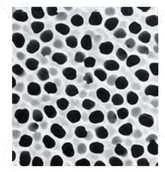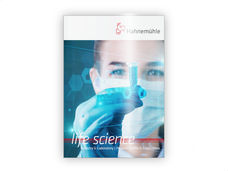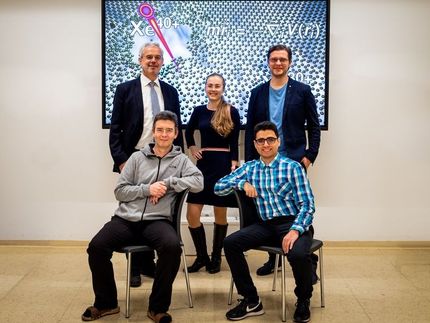Graphene membrane could lead to better fuel cells, water filters
An atomically thin membrane with microscopically small holes may prove to be the basis for future hydrogen fuel cells, water filtering and desalination membranes, according to a group of 15 theorists and experimentalists, including three theoretical researchers from Penn State.
The team, led by Franz Geiger of Northwestern University, tested the possibility of using graphene, the robust single atomic layer carbon, as a separation membrane in water and found that naturally occurring defects, essentially a few missing carbon atoms, allowed hydrogen protons to cross the barrier at unprecedented speeds. While many researchers strive to make graphene defect-free to exploit its superior electronic properties, Geiger's team found that graphene required the vacancies to create water channels through the membrane. Computer simulations carried out at Penn State and the University of Minnesota showed the protons were shuttled across the barrier via hydroxyl-terminated atomic defects, that is, by oxygen hydrogen groups linked at the defect. The researchers published their results in the Nature Communications.
"Our simulations and experiments showed that you need to have at least four carbon vacancies and some sort of channel to overcome the energy barrier that would normally prevent the protons from crossing to the other side," says Adri van Duin, associate professor of mechanical and nuclear engineering, Penn State, who used reactive force-field calculations to do dynamical, atomistic scale simulations of the process. "If we can learn how to engineer the defects and the defect size, we could make an effective separation membrane. Although it still requires a lot of design work, clearly this looks highly attractive for many applications, including desalinization."
It may also work for a new, less complicated design for fuel cells in the future, Geiger believes. "All you need is slightly imperfect single-layer graphene," he says.
Organizations
Other news from the department science
These products might interest you

Anopore™ by Cytiva
Precise filtration made easy with Anopore inorganic membranes
The aluminum oxide filter membrane that can increase the purity or yield of your analyte

Hahnemühle LifeScience Catalogue Industry & Laboratory by Hahnemühle
Wide variety of Filter Papers for all Laboratory and Industrial Applications
Filtration Solutions in the Life Sciences, Chemical and Pharmaceutical Sectors

Get the chemical industry in your inbox
By submitting this form you agree that LUMITOS AG will send you the newsletter(s) selected above by email. Your data will not be passed on to third parties. Your data will be stored and processed in accordance with our data protection regulations. LUMITOS may contact you by email for the purpose of advertising or market and opinion surveys. You can revoke your consent at any time without giving reasons to LUMITOS AG, Ernst-Augustin-Str. 2, 12489 Berlin, Germany or by e-mail at revoke@lumitos.com with effect for the future. In addition, each email contains a link to unsubscribe from the corresponding newsletter.




























































